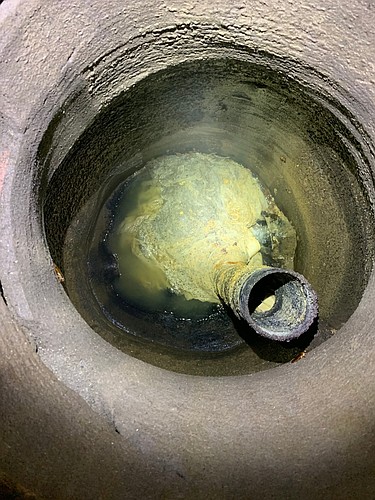- December 20, 2025
-
-
Loading

Loading

In an effort to reduce sewage spills and grease runoff, Sarasota County in July 2019 approved a fats, oils and grease ordinance that required business owners to increase the frequency in which they pump out their grease traps.
However, several business owners said the first time they heard of the regulation change, which will give business owners an added cost, was in late December. The ordinance went into effect Jan. 1.
David Cash, the assistant director for public utilities, said the purpose of the ordinance is to ensure that businesses have the appropriate infrastructure to prevent grease from entering the county’s wastewater collection system, which can cause clogs and blockages.
When that happens, it can cause a sanitary sewer overflow. According to county documents, from 2014 to 2018, the county averaged 57 sanitary sewer overflows a year.
“With some of the concerns that have been cropping up around water quality, we felt it was important to implement this program at an accelerated pace to start reducing the amount of sanitary sewer overflows, which is really the overall objective,” Cash said.
Food service establishments will now be subject to the following requirements:
Small grease traps that are placed under sinks will need to be pumped out every 30 days, and larger units — grease interceptors, — will need to be pumped every 90 days, said Laura Ammeson, compliance enforcement manager.
Mark Cyphers, who owns Munchies 420 Cafe, Pride of the South BBQ, and Cannons Steakhouse and Tavern, said he was notified of the changes in the third week of December 2019 and that businesses near his received their notifications in the last week of December.
Cyphers said the changes to his regular water bills and the increased frequency of pumping will cost him upwards of $2,000 at each location annually.
“It can make a world of difference in a lot of businesses because adding another $266 to a budget on a monthly basis is a considerable amount of money with no notification at all,” Cyphers said.
Although Cash acknowledged that owners were given notice in December, he said these regulations are best industry practice and that turning them into an official ordinance is a project that has been needed for a while. Sarasota County is one of the last governmental bodies in the region to adopt a FOG ordinance.
According to county documents, “grease disposed of by restaurants, homes and industrial sources to the sanitary sewer system” cause 47% of reported blockages that contribute to sanitary sewage overflow.
Cash said the next few months will be about education of the program, not enforcement.
“We don’t intend to take a heavy-handed approach,” Cash said. “We want to educate and inform first rather than just starting enforcement.”
However, when the county does begin enforcing the ordinance, Director of Public Utilities Mike Mylett previously told the Sarasota Observer that noncompliance issues will be handled on a water bill.
Those issues could range anywhere from an additional inspection because of noncompliance to the cost of pumping an owner’s grease trap for grease. In extreme cases, Mylett said the county could terminate an establishment’s water services.